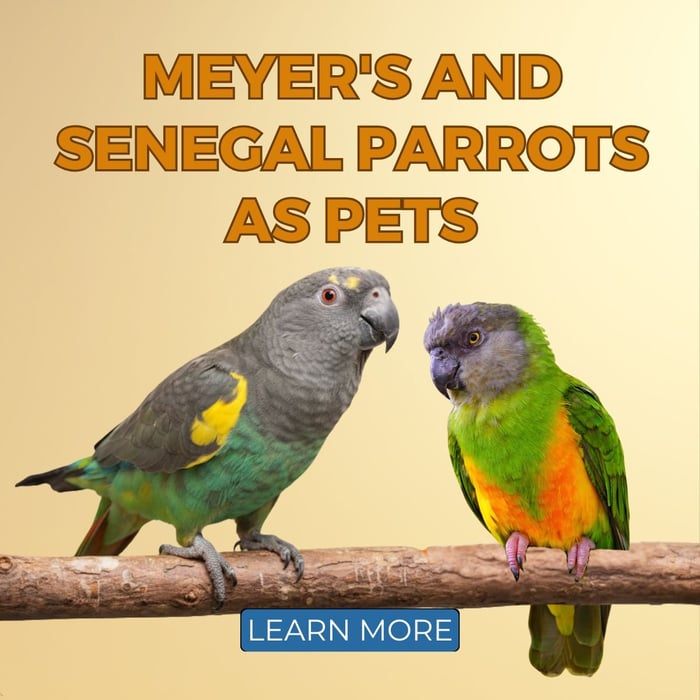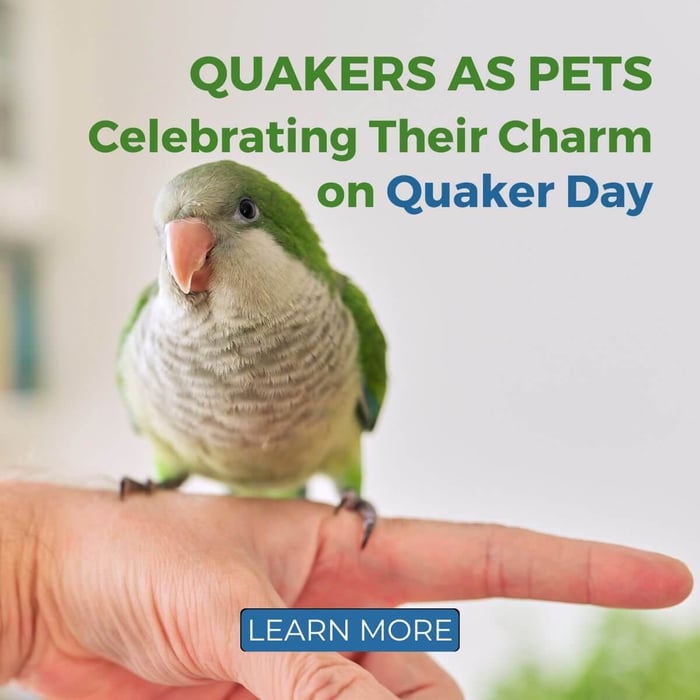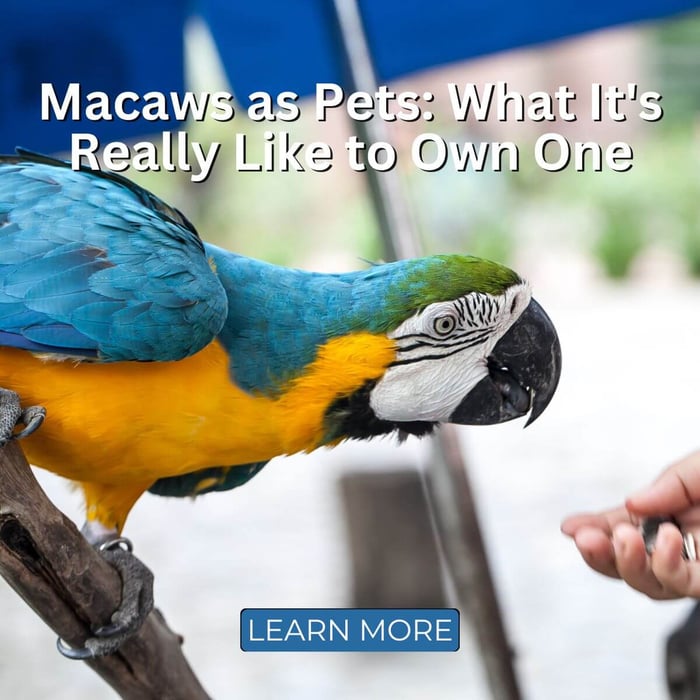Caique Parrots as Pets: Small in Size, Big in Personality
A Brief History: From the Amazon to Our Homes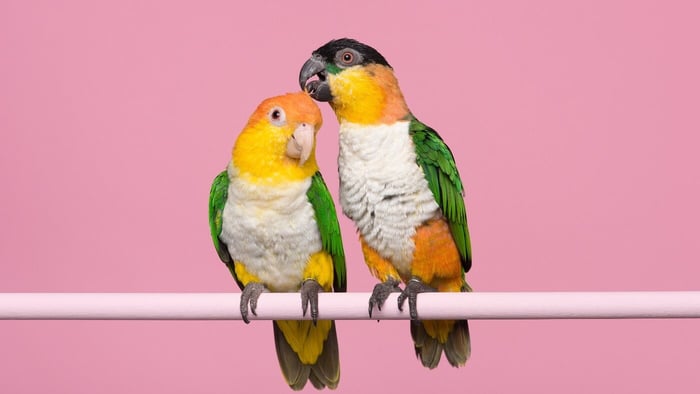
Caique parrots (pronounced kai-eek) are native to the tropical rainforests of South America, particularly the Amazon Basin. They thrive in dense, humid environments where they can be found in small, noisy flocks hopping and climbing among the branches. Their natural curiosity and constant movement make them one of the most active and engaging parrot species in the wild.
There are two main species of Caiques commonly kept as pets: the White-bellied Caique (Pionites leucogaster) and the Black-headed Caique (Pionites melanocephalus). Both are small to medium-sized parrots, about 23 cm long, with short, sturdy bodies and vibrant plumage. They have long been admired for their intelligence, beauty, and bold personalities, making them increasingly popular among bird enthusiasts around the world.
Personality and Behaviour: The Clowns of the Parrot World
If you have met a Caique, you know they are bursting with personality. These parrots are often called the clowns of the parrot world because of their playful antics, curious nature, and comical behaviour. They love attention, games, and social interaction, and will often find ways to entertain both themselves and their owners.
Caiques are energetic and fearless. They will happily roll on their backs, hop around on the floor, or dangle upside down from a perch just for fun. Their playful energy means they are rarely still, and they thrive on having toys and challenges to explore. Owners often describe them as "living batteries" that never seem to run out of charge.
However, that liveliness comes with a need for attention and engagement. A Caique left alone or unstimulated can become demanding or develop unwanted habits such as nipping or excessive calling. With regular social interaction, mental stimulation, and positive training, Caiques become affectionate and joyful companions.
White-bellied and Black-headed Caiques: Similar Yet Distinct
While both species share the same cheeky personality, there are a few differences in appearance and temperament. The White-bellied Caique is slightly calmer and has a creamy chest with bright orange thighs and green wings. The Black-headed Caique sports a striking black cap and a more mischievous streak, often seen pushing boundaries and testing limits.
Both species can be excellent pets, but they are best suited for people who have time to engage with them daily. Their intelligence and boldness make them delightful to train, but they can also be strong-willed. A confident, patient approach helps build mutual respect and keeps their spirited nature balanced.
Housing and Environment: Creating a Caique Playground
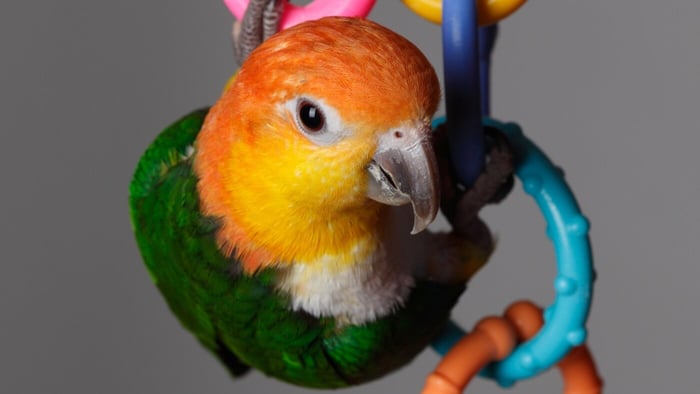
Caiques are highly active parrots that need plenty of space to move, climb, and explore. A large cage with a variety of perches, ladders, and ropes is essential. However, they should also have daily time outside the cage in a safe, supervised environment where they can exercise and satisfy their natural curiosity.
Unlike many parrots, Caiques often prefer to hop rather than fly. Providing a bird-safe play area or stand on the floor, filled with chewable and foraging toys, allows them to explore in a way that feels natural to them.
Because they are so intelligent, boredom is one of the biggest risks to a Caique's well-being. At Parrot Essentials, we recommend providing foraging toys, destructible items, and rotating enrichment options to keep their active minds occupied. Regularly swapping or rearranging toys helps keep their environment exciting and prevents frustration.
Diet and Nutrition: Feeding for Health and Energy
A balanced diet is vital for maintaining your Caique's health and high energy levels. Their diet should include premium quality parrot pellets, fresh vegetables, a small portion of fruit, and occasional seeds or nuts as treats.
At Parrot Essentials, we recommend complete foods such as Askio Nature Complete Parrot Food or Hagen Tropican Granules, both formulated to provide essential nutrients that support strong feathers, good digestion, and overall vitality. For added variety, foraging mixes like Tidymix Parrot Diet can be included to mimic their natural feeding behaviour.
It is best to avoid high-fat, seed-only diets, which can lead to obesity or liver issues. Fresh, clean water should always be available, and introducing new foods gradually will help your Caique adapt without fuss.
Training and Social Interaction
Caiques are intelligent and eager to learn, making training an enjoyable part of their care. Using positive reinforcement, you can teach them useful commands such as "step up," encourage calm behaviour, and even introduce simple tricks. Training sessions also provide valuable mental stimulation and strengthen your bond.
These parrots are very social and tend to form close attachments with their favourite humans. While this bond is a joy, it is important to encourage interaction with multiple family members to prevent over-attachment or jealousy. Consistent, kind handling helps them feel secure and confident.
Because Caiques are naturally expressive, they may vocalise or show stubborn behaviour if they want attention. Providing plenty of playtime and enrichment reduces frustration and keeps their lively spirit positive.
Common Challenges and Care Tips
Caiques' energetic nature means they are not ideal for everyone. They require significant daily interaction and stimulation. Without it, they may resort to biting, screaming, or destructive behaviour. If you are away from home for long periods, consider whether you can meet their social needs.
They can also be territorial, especially around favourite people or toys. Setting boundaries early and using consistent, gentle guidance will help avoid possessive behaviour.
Noise levels are another consideration. Caiques are not the loudest parrots, but they are vocal and expressive. They enjoy chatting, whistling, and sometimes shouting when excited. Most owners find their calls more playful than piercing, but it is still worth keeping in mind if you live in close quarters.
A Small Parrot with a Huge Heart
Caique Parrots as Pets are small in size but overflowing with character. Their vibrant personalities, playful energy, and affectionate nature make them some of the most entertaining companions in the parrot world. They are best suited to owners who can match their enthusiasm, provide daily engagement, and enjoy an active relationship built on trust and fun.
If you are looking for a pet that will make you laugh, challenge your creativity, and brighten every day, a Caique might just be the perfect choice.
Celebrate Caique Day with Parrot Essentials
As we celebrate Caique Day on 7th November, why not show your feathered friend some love? Treat them to a new toy, a nutritious food mix, or a fun foraging challenge from our carefully selected range of Caique supplies.
At Parrot Essentials, we are proud to support bird owners across the UK with expert advice and high-quality products designed for happy, healthy parrots. Celebrate your Caique's big personality today and give them the enrichment they deserve.
FAQs
What makes Caique Parrots good pets?
Caique Parrots are known for their playful, affectionate personalities. They are intelligent, social, and love interaction, making them wonderful companions for owners who can give them plenty of attention.
Are Caique Parrots loud?
Caiques are not as loud as larger parrots, but they can be vocal when excited or seeking attention. Their calls are typically cheerful and fun rather than shrill.
Can Caique Parrots talk?
Caiques can mimic sounds and learn a few words, but they are not known for being strong talkers. Their appeal lies more in their expressive behaviour and playful antics.
Can Caique Parrots live with other birds?
Caiques can be territorial, especially around other parrots of a similar size. Supervised interaction and separate cages are best to prevent conflicts.
Are Caique Parrots easy to train?
Yes, Caiques are bright and respond well to positive reinforcement. Short, regular training sessions using praise and small treats work best.


